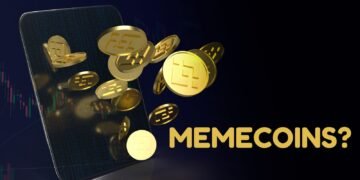In a recent statement, prominent entrepreneur and NFT enthusiast Gary Vee emphasised the immense potential of non-fungible tokens (NFTs) in the ticketing space. Vee predicts that NFTs will revolutionise ticketing systems, unlocking new opportunities and reshaping the way we experience and engage with live events.
The ticketing industry has long faced challenges such as counterfeit tickets, scalping, and limited control over secondary market sales. By leveraging the unique properties of NFTs, Vee believes that these issues can be effectively addressed, offering enhanced security, transparency, and ownership rights for event organisers and attendees alike.
One of the key advantages of using NFTs in ticketing is their inherent ability to provide verifiable proof of authenticity. Each NFT ticket can be minted on a blockchain, ensuring a secure and tamper-proof record of its origin. This technology-driven approach eliminates the risk of counterfeit tickets and provides peace of mind for both event organisers and attendees.
Furthermore, NFTs enable ticket holders to have greater control over their tickets. Smart contracts can be embedded within NFTs, allowing for programmable functionalities such as transfer restrictions, resale conditions, and revenue sharing mechanisms. These features empower event organisers to enforce ticket terms and conditions, while also ensuring a fair and transparent secondary market for ticket resales.
The adoption of NFTs in ticketing has the potential to democratise access to events, as it enables direct peer-to-peer transactions without intermediaries. By removing the need for traditional ticketing platforms and associated fees, NFT-based ticketing systems can facilitate a more inclusive and accessible environment for fans, enabling them to participate in their favourite events more easily.
Moreover, NFTs offer a unique opportunity for artists and event organisers to establish deeper connections with their audience. NFT tickets can be enhanced with exclusive content, limited edition merchandise, or special perks, providing additional value and creating a sense of exclusivity for ticket holders. This innovative approach fosters fan engagement and loyalty, while also opening up new revenue streams for artists and event organisers.
While the concept of NFT ticketing is still in its early stages, the potential impact on the entertainment industry is significant. From music concerts to sporting events, NFTs have the potential to reshape the way tickets are distributed, sold, and experienced. However, it is important to navigate the implementation of NFT ticketing systems carefully, considering factors such as scalability, user experience, and regulatory compliance.
Gary Vee’s endorsement of NFTs as a game-changer in the ticketing sector sheds light on the vast opportunities that lie ahead. NFTs offer a secure and transparent solution to longstanding issues in ticketing, providing authenticity, control, and enhanced fan engagement. As the entertainment industry explores the potential of NFT ticketing, stakeholders must collaborate to ensure a seamless integration that benefits all parties involved, ultimately enhancing the overall event experience for fans around the world.







